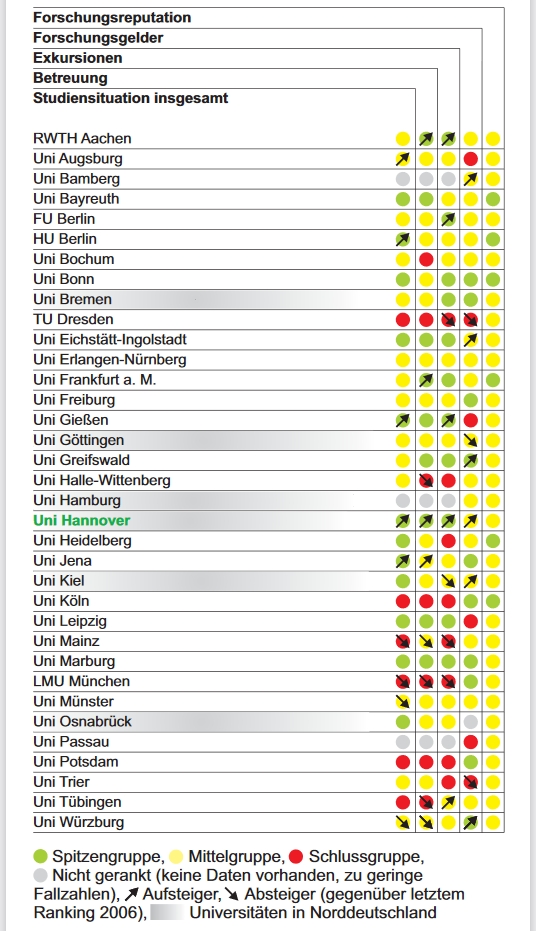


In 2011, we launched the research-oriented Master's programme "Economic Geography". According to neutral observers, research at Hannover as a geography location has a specific profile that is not found at other universities in Germany.
The Scientific Commission of Lower Saxony (WKN), which is responsible for evaluating research in the state, has given Hannover's economic geography excellent marks in its evaluations of recent years: Human geography is very well represented in Hannover with an excellent economic geography. The economic geography, which now has three professorships, is a unique selling point for Hannover nationwide. [Forschungsevaluationen an niedersächsischen Hochschulen und Forschungseinrichtungen, Geographie]
CHE University Ranking
Leading position for geography program in Hannover
The CHE University Ranking is the most comprehensive ranking of study subjects and locations in the German-speaking world, organised by a neutral party. It is also included in the study guide of the weekly magazine "Die Zeit". In addition to teaching quality, research is also evaluated here. Geography in Hannover as a whole (without differentiating between human geography and physical geography) belongs to the middle group in Germany for most of the four indicators of research quality. Among the six northern German universities with a bachelor program in geography, Hannover usually occupies the top position. Comparative strengths of Hannover lie in the research relevance of education and the research reputation.



THIRD-PARTY FUNDED RESEARCH AND PUBLICATIONS
Research performance can also be evaluated objectively in other ways. The scope of research projects funded by third-party funds (e.g. DFG, VW Foundation) and, in particular, the number of publications in high-ranking international journals (as a true output indicator of research performance) are the two most important indicators. In both cases, the scientific community evaluates, partly anonymously, the ideas presented by scientists of the Institute. The listing of externally funded research projects and publications in peer-reviewed English-language journals are documented in detail and up-to-date on this website.


